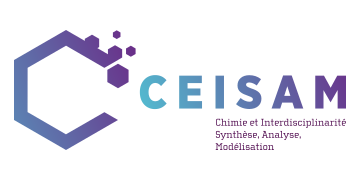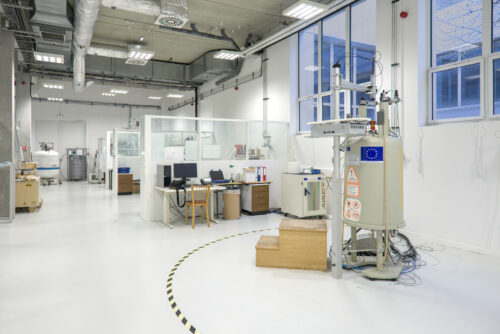The project “Remote NMR (R-NMR): moving NMR infrastructures to remote access capabilities” aims at establishing common and standardised practice for remote access to NMR facilities in Europe. The MIMM team and the CEISAM NMR platform will contribute to exchanges on the topic of remote access, leading to a broader and greener access to NMR in Europe.
The R-NMR project is a coordination and support action (CSA) of the Horizon Europe framework programme, on the development consolidation and optimisation of European research infrastructures, that aims maintaining global leadership. It includes over 20 major European NMR facilities, that will collectively work on the design and testing of guidelines and practices for remote access to NMR facility. The project is led by Prof. Harald Schwalbe at the University of Frankfurt, Germany.
During the pandemic, NMR infrastructures slowed down their operations to variable degrees, and particularly access by remote users dropped significantly, raising the need to establish standardized procedures for remote access to improve their resilience to adverse external factors. In this proposal an inclusive network of NMR-infrastructures throughout Europe will be established, surveying if and how remote access can be made possible according to the needs of the community, and implementing GDPR at facilities and sample shipment procedures. Routines for remote NMR-usage will be established, including dissemination of research and teaching protocols, archiving of data, and sample shipment. The overall CO2 footprint of the operation of the consortium will be evaluated, as well as its reduction due to the reduction of travels.
The CEISAM NMR facility hosts 6 high-field and 3 benchtop spectrometers, and has over 50 different users per year, from academia and industry in fields ranging from organic chemical synthesis to plant and health sciences. It is part of the Corsaire inter-regional platform and of the Metabohub national infrastructure. It is constantly working to improve its organisation and will undergo major changes by 2025 as part of the CPER UltraOmics project. Its participation to this European initiative will be beneficial to its diverse range of users.

